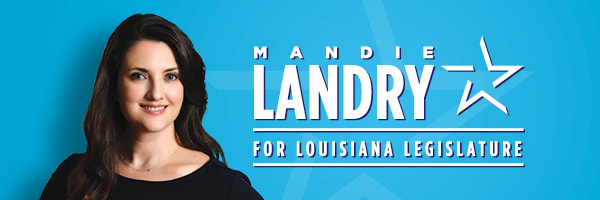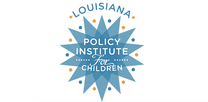|
Mandie Landry announces candidacy for House District 91. Ready to move Louisiana forward Today, local attorney, neighborhood leader and civic advocate Mandie Landry announced her candidacy for the Louisiana House of Representatives, District 91.
“I am ready to serve the people of Louisiana, like I have served my clients and my community over the years,” said Ms. Landry. “I want to help ensure that working class men and women in Louisiana have a voice and the same opportunities I have been given to succeed.”
3 Comments
(CLEVELAND) On behalf of women nationwide and in order to stop opioid prescription-related Neonatal Abstinence Syndrome (NAS) births, attorneys filed a landmark complaint and motion for issuance of a preliminary injunction requiring nearly all prescriptions for opioids to women of child-bearing age be written only after the woman tests negatively for pregnancy, as currently required with other medicines which damage fetuses. The filings were supported by sworn declarations from prominent physicians who give witness to the fact that opioid intake while pregnant has been determined to have long-lasting effects on exposed embryos. Plaintiff Amanda Hanlon said, "I have seen with my own eyes that prescription opioids hurt babies, moms, and their families. If I could tell every woman, like me who is at risk for hurting their unborn babies, of how bad opioids are, I would. This injunction will tell every woman what they need to know, right when they need to know it with their doctor present. I hope the motion is approved." Attorneys Scott Bickford and Celeste Brustowicz said this single action should abate the incidence of opioid-dependent children born to prescription opioid-using mothers. Relatively recent scientific confirmation that in-utero exposure to opioids causes teratogenic birth defects prompted the legal action, the attorneys said. The incidence of NAS births is now estimated by organizations like the Centers for Disease Control to be every 15 minutes in the U.S., they added. “This request is not unlike other programs established by drug manufacturers, distributors, pharmacies, and the FDA to successfully protect fetal development,” said Ms. Brustowicz. “The Accutane Program which requires the same of child-bearing women with acne is evidence that institutional requirements like those sought here do protect babies from fetal injuries.” A major part of the Accutane Program requires urine pregnancy tests and communications between the prescribing physician and the dispensing agent, such as a pharmacy, with the support of the drug manufacturers and distributors, according to the filing. The injunction seeks a court order to require major opioid pharmaceutical manufacturers like Purdue, Teva, Cephalon, Johnson & Johnson, Janssen, Endo, and Allergan to implement a program which, except in limited circumstances, will require a doctor to prescribe only seven days of an opioid-based prescription to a child-bearing-age woman after a negative pregnancy test. Physician renewal of a second prescription can occur only after a second negative test. “Our organization Love on Wheels works to help children born with opioid-addiction at birth to opioid-addicted parents,” said Dr. Kathy Kunkel, a founder of this organization that deals with foster children. “We support actions, such as these, which would help reduce the number of births of children born with Neonatal Abstinence Syndrome, thus addressing a part of the problem caused by prescription opioid abuse and its impact on women and families.” “Anything a pregnant woman ingests or breathes that enters the bloodstream is transmitted to her baby by the placenta, and opioids pass the mother’s placenta with ease,” said Ms. Brustowicz. “In-utero opioid exposure subjects the fetus to addiction as well as brain and other organ injury.” Ms. Brustowicz and Mr. Bickford are currently leading a team of attorneys working on behalf of NAS children who were harmed by prescription opioids. They have filed eight state class actions and one nationwide class action seeking to recover medical monitoring costs, epidemiological studies, medical and social welfare treatment, and damages on behalf of the prescription opioid NAS babies and children. “The efforts by the Federal Drug Administration, the National Institutes of Health and other government agencies have been focused on abating addiction and crime, but there is no particular focus on opioid-dependent babies and children,” said Attorney Scott Bickford. “This injunction is an extraordinary remedy to an extraordinary national crisis.” Moreover, Attorney Bickford as well as Dr. Kanwaljeet Anand, the former chief of pediatrics at Stanford University, said the costs of caring for such children born dependent on opioids threaten the budgets of every family with such a child and every political subdivision in the country. “There is an unprecedented epidemic of opioid addiction sweeping across the U.S.,” said Dr. Anand. “Newborn babies are the most vulnerable citizens, their lives and developmental potential are disrupted by Neonatal Abstinence Syndrome (NAS), but arrangements for their short-term and long-term care have been ignored until now. Babies with NAS must receive essential medical care and rehabilitation. On average, one infant with NAS is hospitalized every hour in the U.S.” As of September 30, 2016, child and family assistance spending related to the epidemic was about $6.1 billion, according to various reports tracking the problem, though Attorneys Bickford and Brustowicz believe the problem is not sufficiently tracked and reported. “The only realistic means of reducing these types of birth is prevention,” said Mr. Bickford. “The proposed injunction provides a pragmatic approach to avoid NAS and congenital malformations related to opioid use, while providing responsible exceptions for surgical and other acute/chronic pain relief during pregnancy,” added Dr. Anand. “Since opioids can alter fetal development, preventing in-utero opioid exposure is key to reducing lifelong disabilities in the affected child. Every baby should be given the best chance to the best health. “ Nearly one-third of all pregnant women in the United States are prescribed opioids, according to recent Centers for Disease Control reports. Neonatal Abstinence Syndrome (NAS) is a group of medical conditions faced by babies born dependent on opioids from their exposure in the womb due to their mothers’ usage. Between 2000 and 2009, the National Institute on Drug Abusereported a five-fold increase of infants born with NAS. Data from multiple states that track NAS births continue to show growing numbers of newborns afflicted with it, and it is estimated that tens of thousands of NAS babies are born every year. “It will cost billions to evaluate, treat, and monitor these infants and children as they grow into adulthood,” said Mr. Bickford. “These babies not only require expensive after-birth care but exhibit life-long problems, including profound learning disabilities and propensity toward future addictions. Thus, the fight continues for these babies.” “Individuals and health professionals are still woefully uneducated of the potential long-term impacts of first-time opioid exposure for themselves, especially expecting mothers,” said Greg Williams, a national addiction health policy expert and former Executive Vice President and Co-Founder of Facing Addiction."This would be a huge step forward to push the medical field to use alternative methods and, in the long-term, limit the epidemic of NAS births in our country." ADDITIONAL DOCUMENTS: UNDISPUTED MATERIAL FACTS SUPPORTING MOTION FOR PRELIMINARY INJUNCTION DECLARATION OF DR. KANWALJETT S. ANAND DECLARATION OF AMANDA M. HANLON About the Opioid Justice Team The Opioid Justice Team (OJT) is a group of attorneys working with doctors and national and local nongovernmental organizations fighting to end our nation’s opioid epidemic by identifying real solutions to the crisis. The OJT seeks not only compensation for damages for their clients but also a comprehensive settlement that will address the root causes of the opioid crisis. For more information, please visit http://opioidjusticeteam.com/.
Other States Use Sin Taxes to Fund Early Child Care and Education Holds Lessons for Louisiana3/27/2019 New Report: Other States Use Sin Taxes to Fund Early Child Care and Education Holds Lessons for Louisiana
Prioritizing Our Future: How cities and states dedicate funds for early care and education Congratulations to Audubon Schools’ CEO Latoye Brown who was featured in the National Alliance for Public Charter School’s blog this week in celebration of Women’s History Month. Ms. Brown will also be taking over the NAPCS Instagram posts for March. Brown is a participant in the School Leaders of Color convening, and shares her experience serving as an educational leader in the post-Katrina landscape.
Prioritizing Our Future: How cities and states dedicate funds for early care and education Recent public exchanges between state education leaders, legislators and the Governor’s Administration make clear there is no agreed upon approach to addressing the $86 million down-payment a state-commissioned report said was needed to bring Louisiana Early Child Care programs into line with public need and quality standards set forth by federal and state agencies. But one non-profit that has studied this issue for years has researched multiple options that can be acted upon right now by the State of Louisiana, if there is a will, as other states have done, to explore viable options related to what are commonly known as “sin taxes” on tobacco, gaming and other sources of revenue. “We spent the Fall discussing with state lawmakers, educators, business and childcare advocates how to develop a sustainable source of funding in Louisiana for more accessible, affordable and quality Early Child Care and Education options for working parents, and we now have a report that identifies how other states are doing it,” said Louisiana Policy Institute for Children Director Melanie Bronfin. Prioritizing Our Future: How Cities and States Dedicate funds for Early Care and Education explores voter-approved funding models for early childhood care and education used in other states. “Our report responds to increasing demand from Louisiana decision-makers for significant and sustained public sources of investment in early childhood,” said Ms. Bronfin. “And here are the facts about what others are doing.” Legislators and the Governor have supported discussions already underway about dedicating new revenue from sports betting, should it be adopted by voters in Louisiana, to early childhood education, but while providing a source of funds, it could not solely address the $86 million price tag needed right away…or the 10-year path of required investment outlined by the State Early Childhood Care and Education Commission convened by State Representative Stephanie Hilferty. LPIC Director Bronfin added that federal funding for children is projected to make up a shrinking percentage of the national budget. “In Louisiana, early childhood programs are unable to count on a sustained investment. While recent and time-limited increases in federal funding have allowed the state to serve over 90 percent of 4-year-olds in need, the only state administered program for children under age four has gone from serving almost 40,000 to 15,000 today. There is no secure, stable funding specifically for early care and education in Louisiana.” The new LPIC reporton revenue sources notes holes in funding for comprehensive, affordable early childhood systems force an unrealistic financial burden upon working parents. In Louisiana, child care is becoming increasingly cost prohibitive: Families with one infant and one preschooler experienced a 35 percent increase in child care costs between 2010 and 2016. Single parents pay 38 percent of their income for infant center care, and 45 percent of the state’s children are in single parent families. “We’re not alone in needing to address this need,” said Ms. Bronfin. “Some states and localities have developed creative public financing mechanisms for sustainable funding by dedicating voter-approved funding streams specifically for early care and education from sources like tobacco taxes, lottery funds and dedicated sales taxes.” Below is a review of some of these funding sources covered in the report and how they are similarly adopted or utilized in Louisiana: Funding Streams in Other States Tobacco Tax: Arizona and California voters approved a dedicated tax, generating $143.3 million and $358.3 million, respectively, in Fiscal Year 2018 for early childhood. Louisiana’s tax rate of $1.08 per pack of cigarettes is among the lowest third of tax rates in the country. Tobacco tax revenues generated in Louisiana $314 million in Fiscal Year 2017 and are allocated to healthcare, Medicaid, and the state general fund. Tobacco Master Settlement Agreement Funds: Connecticut, Kansas, Kentucky, and Missouri allocated some or all of their settlement funds for early childhood, with annual allocations ranging from $10 million to $40 million. Louisiana divides its settlement funds between bonds, children’s healthcare, and education. Education allocations provide funding for TOPS, $58 million in Fiscal Year 2018, and instructional enhancements in pre-K through grade 12, including $13 million for grades K-12, and under $3 million to pre-K. Lottery Funds: Georgia dedicates 25% of lottery revenues to fund the state pre-K and HOPE scholarships programs, generating $358 million in 2017. In Tennessee, $25 million of excess lottery taxes are allocated for voluntary pre-K. In Louisiana, state lottery revenues are predominantly allocated to the Minimum Foundation Program (MFP), which funds grades K-12. In Fiscal Year 2017, $176.5 million was allocated to the MFP. Sales Tax: South Carolina levies a one-cent sales tax of which $15.5 million in Fiscal Year 2017 funds half-day Pre-K slots. The entirety of Louisiana’s sales tax revenues, $3.86 billion in Fiscal Year 2017, is allocated to the state general fund. School Funding Formula: Colorado, the District of Columbia, Iowa, Kentucky, Maine, Oklahoma, Texas, Vermont, West Virginia, and Wisconsin fund pre-K programs through the state’s school funding/education finance formula. Allocations range from $19 million in Maine to $1 billion in Texas. Louisiana’s school funding formula, the MFP, provides funding only for grades K-12 in public schools. In Fiscal Year 2018, the allocation was $3.7 billion. “The purpose of this report, as we prepare for a fiscal-only Legislative Session, is to educate our lawmakers and our families that there are ways to allocate specific funding streams at this critical time of life,” said Ms. Bronfin. “Ironically, sin taxes have been the most popular funding source for this purpose, and it is sports betting revenue that has recently been most often mentioned as doable in Louisiana. “Louisiana spends less than one-half of one percent of its general funds on early care and education. It is serving less than 15 percent of its children in need under age four while two-thirds of young children in Louisiana have both parents working. Moreover, child care costs almost as much as a public college tuition. It’s clear we have to do something and here are some ways to do it.” Link to the full report is here: https://docs.wixstatic.com/ugd/43cca3_6be1d33d83bf4475bb7374d5ce620727.pdf About Louisiana Policy Institute for Children The mission of the Louisiana Policy Institute for Children (LPIC) is to advance policies to ensure that Louisiana's young children are ready for success in school and in life. LPIC is a 501(c)(3) nonpartisan, nonprofit organization that serves as an independent source of data, research, and pertinent information for policy makers, stakeholders and the public at large around issues related to young children in Louisiana. LPIC develops policy proposals informed by research, best practices and the experiences of other states and conducts educational and outreach activities around these recommended policy solutions.
The Orleans Parish Assessor’s Office will be holding question and answer sessions to help business owners better understand how to manually file their LAT 5 Business Personal Property Self-Reporting form as well as learn how to complete the form electronically at nolaassessor.com, announced Orleans Parish Assessor Erroll Williams.
The sessions are free and will offer direct staff assistance regarding completion and online submittal of the form, as well as general questions about the form itself. “We’ve continued to make the online submission process more user-friendly and as intuitive as possible,” said Assessor Williams. “We’ve seen steady growth in online submissions from year to year but we’re really still not where we’d like to be. A major focus of these sessions will be to simplify the online process for filers.” The LAT 5 is a declaration of a business’s merchandise/inventory, if applicable, and the cost and year of purchase of fixed assets, such as equipment, furnishings and leasehold improvements. Assessor Erroll Williams and Business Personal Property Supervisor Lonese Varnado will host the sessions. Session locations, dates and times are listed below. Businesses and private citizens alike can now view a comprehensive list of all Business Personal Property Self Reporting Form filers online by visiting nolaassessor.com. LAT 5 “Info Sessions” will be held: Wednesday, March 13 9:30 a.m. Orleans Parish Assessor’s Office City Hall 1300 Perdido 4th Floor AND Wednesday, March 27 9:30 a.m. Orleans Parish Assessor’s Office City Hall 1300 Perdido 4th Floor It is recommended that interested parties make reservations, as space is limited. To make a reservation call (504) 897-6110 or email [email protected]. |
Archives
November 2022
Categories
All
|
||||||||||||||||||||||||






 RSS Feed
RSS Feed